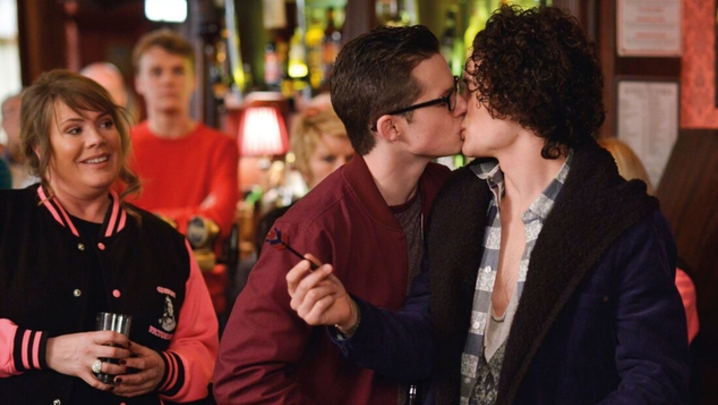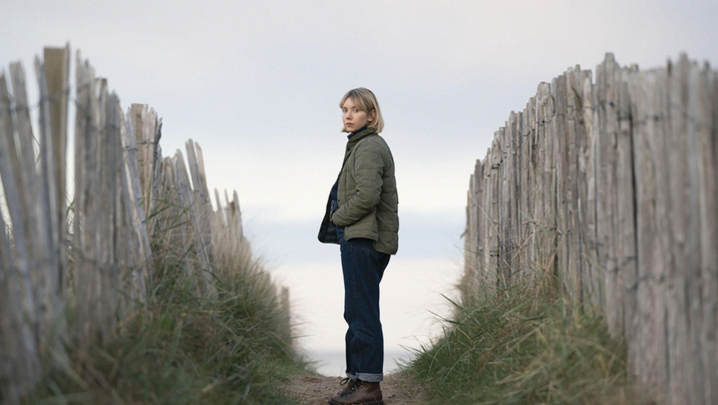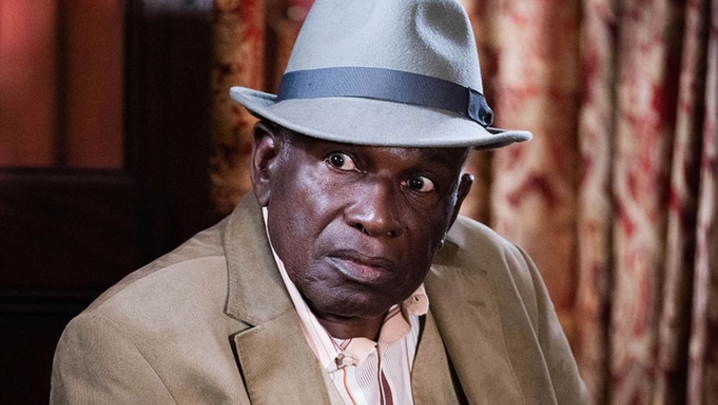Does the relationship between writers and producers always have to be adversarial? Carole Solazzo investigates
“Next time I produce a play – no author,” yells Max Bialystock, the producer of Springtime for Hitler in Mel Brooks’s The Producers. To be fair, the unhinged writer, a former Nazi, does shoot Max.
And did you hear the one about the real-life writer whose producers blocked him from attending the Baftas? He later “liberated” the award from their trophy cabinet.
Then there are the apocryphal tales of 1970s writer-producer duos whose relationships were more Burton and Taylor than Liz and Dick themselves.
So, is the association between writer and producer destined always to be adversarial? Even downright antagonistic?
“It’s no longer a one-to-one relationship” says Susanna Venables Fisher, writer and Chair of the television department of the Writers’ Guild of Great Britain. “Now it’s likely there will be three or four different tiers of producer [meaning that] writers have much less power now than we had a generation ago.”
Lisa Holdsworth (Call the Midwife, Dance School), former Chair of the Writers’ Guild, sets this squarely at the door of finance: “The BBC is having to do less with less because of the licence-fee settlement. And there’s been a downturn in TV advertising.”
Which, according to freelance drama producer Phil Dodds (Emmerdale, Hollyoaks), “means that TV companies are increasingly moving to co-production and co-financing models for drama production”.
The merit of these partnerships is clearly visible on screen. Just look at the production values of the recent Doctor Who episodes since the BBC joined forces with Disney.
The downside, from the writer’s viewpoint, Dodds says, is “the ever-increasing number of producers and execs who demand editorial and creative input” before a script gets anywhere near a green light.
Consequently, says Venables-Fisher: “Writers are increasingly being asked to do more work for little or no money. We conducted a fee census with TV writers, and the early indications are that the majority of members… are not making a living from working in TV.”
Colin McKeown, a producer and the founder of LA Productions in Liverpool, says: “If you’re going to do a co-production, then don’t do it on a passion project. Do it on a project that is commercially viable, but isn’t tugging at your heartstrings. Otherwise, you’ll fall foul of the various compromises you have to make.”
Producer Gill Isles (Car Share, Alma’s Not Normal) says: “It’s completely different in comedy. There’s a lot less money than in drama, so we have to be really canny with how we shoot, and that has to feed into the writing.”
She explains: “That’s why I get the director involved early on in terms of the practicality of the production, how they see it and get invested in it.
“I work really closely with the writer and the director as a trio to develop the script, and I check in regularly with the production company. Then, when we move into production, we’re all on the same page.”
Holdsworth agrees. “Bring the writers in early, get us involved. It will pay dividends. Over and again, when I’ve heard about production problems, I’ve wanted to say: ‘If you’d told me about it I could have found a solution in the script.’
“Some producers absolutely get it,” she says. “Nicola Shindler, for example, understands the power of a writer and has had great success because of it.” Shindler, the founder of Quay Street Productions, worked with Russell T Davies on Queer as Folk, It’s a Sin and Nolly.
But Holdsworth is adamant that, with the proviso that it is “at the right stage of their career”, writers “should have more decision-making power”. A writer-producer such as Heidi Thomas on Call the Midwife, she says, “will create an environment – time, space, a fantastic script editor – where writers can do their best work”.
Although Holdsworth does regret that “writers are not encouraged to be on set”, she doesn’t believe they should “get involved in decisions about things like lighting, or camera angles – there are some very clever people to do that”.
So, not showrunning in the US sense, then, where the writer-producer will seemingly have a say in everything from casting to the colour of the set.
“Some shows need more than one writer. So a lead writer working with others to co-write episodes can work positively,” argues McKeown.
Jimmy McGovern was a UK-style showrunner-as-lead-writer on Broken, and showrunner with an executive-producer credit on Moving On.
According to writer Neil Richards, the producer should be a “fan, collaborator, dramaturge and defender”. He remembers working with BBC producer Alan Shallcross: “From the first meeting, he’d treat writers with respect.
“He was meticulous in pointing out what wasn’t working in a script, but he never micro-managed next drafts and never told a writer how to fix a problem.”
Richards continues: “Once execs and broadcasters got involved, Alan was a master strategist at steering a writer through the shark-infested waters. And if ever there was bad news heading the writer’s way, Alan would personally take it upon himself to make the call.”
Dodds and McKeown would absolutely agree with that. Both use the analogy of producer as football coach in working with writers. Although, hopefully, without recourse to Sir Alex’s turbo-charged hairdryer.
“Problems can arise when creative endeavours become ego- and insecurity-driven endeavours writ large,” Dodds says.
But, he says, being a good producer is about “getting the best from your ‘players’ by insulating writers from too much ‘noise’ that might banish confidence. And ensuring they get the nudges and the difficult conversations required to do their best work.”
McKeown adds: “It’s about putting a team together that not only is the best you can hire, but whose players blend and work together well.”
“It’s all down to the writers’ experience,” Dodds says. “If they’ve come from continuing [drama], then they’ve naturally absorbed the tools of scheduling and production limitations.”
But, he continues: “That is not to say that it should sit in the forefront of their mind. They should always be pushing for the creative ambition of what they want to write. Then, it’s the producer’s job to come in and say: ‘That’s great but we can’t afford that here, so how about we try something different?’ Or: ‘If we’re putting money here, then we’ll have to compromise on this other element.’”
It is no accident that most of the recent big-name writer-showrunners – Sally Wainwright, Kay Mellor, McGovern, Russell T Davies – came up through continuing drama. Many excellent producers did, too.
Writer Katharine Way (Doctors, Casualty) says her advice would always be: “Work on a soap, learn the craft, get paid and broadcast while you do it, build your relationship with the script editor.
“Then that script editor will become a producer. One day, they may even be head of drama somewhere. So if they like your work and you have a relationship, you’ll be in a position to develop work together.”
This is LA Productions’ modus operandi, where McKeown has given many a successful writer their start on anthology show Moving On, the nearest thing at LA to continuing drama. The relationships here give rise to trust. “Generate trust and you’ve got a formula for success,” he says.
Relationship? Trust? “The best relationship a writer can have with a producer is like a close friendship. Almost like a marriage,” says Way. “The only problem is that, to get there, you have to kiss a lot of frogs.”
Producers might say the same.






